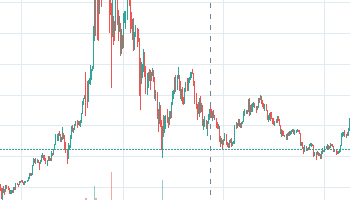The advent of blockchain technology has arrived as a monstrous train, the enormous momentum of which could heavily impact every sphere of human endeavor — the financial landscape can't be left out in that regard. What does the future look like for the financial world as blockchain cruises forward at breakneck speeds? Well, some experts think it could be a blessing in disguise.
What's Blockchain All About?
As far as cryptocurrencies are concerned, blockchain acts as an online ledger book that records peer-to-peer transactions. With this technology, there is no central controller — it's decentralized. Decentralization means that, the middleman (third party authority) is completely thrown out of the window.
Information is saved on the network through time-stamped blocks which are interconnected and cryptographically secured. Once any information is recorded on a specific block, it's nearly impossible for it to be altered without affecting the entire chain. Moreover, the ledger is accessible by all connected devices on the network, all at the same time. This means transparency is assured among all parties.
The first major cryptocurrency to run on blockchain technology was Bitcoin (BTC) Bitcoin was the leader and pioneer for all other cryptocurrencies. On Nakitcoins website, you can trade in many cryptocurrencies and make some really cool returns.
Marrying Blockchain to the Financial Landscape
The evolution of blockchain has been hyped as a potential game-changer in the banking sector; but what does this really mean? The operations of banking institutions in many corners of the globe are rooted in a centralized authority. Unfortunately, this is completely alien to the decentralized nature of blockchain.
Proponents suggest that with the ever-increasing pool of information that must be processed by banks, blockchain can positively revolutionize traditional banking systems. It can do this by way of securing transactions, skyrocketing data processing, enhancing transparency as well as many more advantages.
The big question is — will the financial landscape be willing to take a shot at this technology which is still at its budding stage? And what disruptions can we expect if we welcome blockchain with open arms into the financial landscape?
How Blockchain Can Disrupt Finance
Depending on how we interpret disruption, there are many areas in finance that may feel a blockchain disruption — examples include cross-border payments, remittances, customer verifications and share trading, etc.
Payments
With current banking systems, processing numerous payments is very time-consuming, due to the bureaucratic authorization steps. But with blockchain, there is no need for middlemen (regulators) — this would reduce processing costs and increase payment speeds.
Identity Verifications
The identities of customers would be digitally verified on a blockchain, once and for all, in relatively shorter times. This will eliminate the complexities of customers going through repeated laborious verification processes.
Trading of Shares
This is another area that stands to be shaken by blockchain. The purchasing or selling of shares usually involves numerous middlemen, brokers, and exchanges. The usage of a blockchain can eliminate this unnecessary series of intermediaries, thereby allowing global trades of shares through the network.
The inevitable conclusion is that, blockchain could be a great disruptor to the financial landscape. We must brace for its impact.


 Updated every 10 minutes
Updated every 10 minutes


